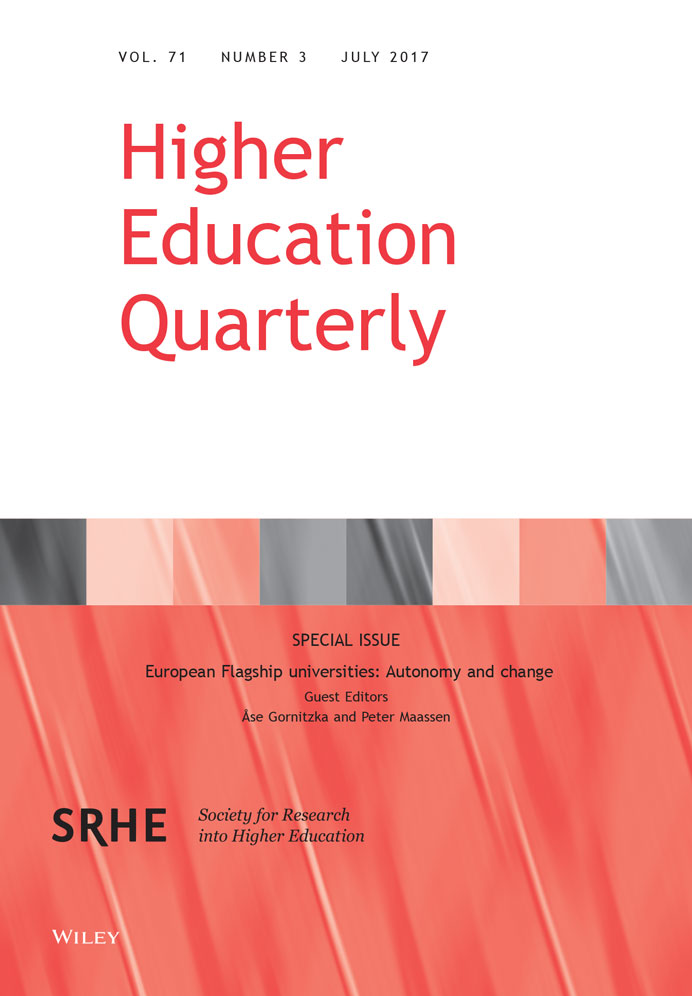Multi-level strategies in universities: Coordination, contestation or creolisation?
Funding information: Research Council of Norway, Grant/Award Number: 212422; University of Oslo
Abstract
In contemporary research-intensive universities, strategies are not only found at the institutional level but also at various sub-levels in the organisation. In principle, such multi-level strategies are assumed to be a means for institutional coordination in the sense that more generic strategic objectives may give room for local adaptation within the broader strategic framing. Whether or not this actually is the case is another issue, and the current article analyses the links and relations between institutional and sub-level strategies in a sample of public research universities. The findings suggest that—although introduced as integrating instruments—multi-level strategies may actually increase the complexity within the university as different strategies provide different actors with leeway for opportunistic behaviour. This has implications for the coordination of the university's organisational sub-units and for the existing governance structures.




